#culture analysis
Explore tagged Tumblr posts
Text
You! American fan of foreign or otherwise un-American media! Are you aware of the nuances and cultural differences that are portrayed in that media and have an understanding that you as an outsider looking in should be careful with the lenses you analyze that media in because you have a different perspective that is not catered to?

#media analysis#this post was made by an American btw#fandom culture#fandom#also that subtitles and translations are not always exactly correct
30K notes
·
View notes
Text
You know, it's rather interesting to me that Taylor Swift's parasocial relationship with her fans is honestly more akin to a YouTuber than a writer's. When I scroll through her tag on tumblr/Twitter, it's far more regarding the connection to her personal life/relationship developments than the actual metaphors/fictional story she might be telling. Everything comes back to how her songs reflect back on her relationships with Joe/Matty/Travis/Jake/insert ex-boyfriend here. And what fascinates me about it is that even though she complains about it, she leans into that very perception because it strengthens the parasocial bond.
The marketing for TTPD so clearly being about Joe Alwyn and the songs to Matty Healy. The marketing/video for Red TV so CLEARLY being about Jake Gyllenhaal, with so many of the new lines in All Too Well specifically being digs at him (I'll get older but your lovers stay my age, casting an actor that looks like him for the video, specific lines in I Bet You Think About Me). The fact that songs like Getaway Car and Bejeweled and Gorgeous and London Boy and Lavender Haze being picked apart at time of release and long after for signs of relationships crumbling. The way she uses surprise songs in relation to her relationship development with Joe/Matty/Travis. The damn TTPD "stages of grief" playlists where she deliberately undid/changed the meanings of old songs just to keep her audience speculating on her love life.
It's not sexist to point out that her wielding her love life is a marketing tool and that the strongest connection to her audience isn't the strength of her writing/the composition of her music- it's her deliberate crafting of a connection between her music and her personal life, leaving the audience invested in her music as an extension of Taylor the Person/Girlfriend rather than Taylor the Artist.
#taylor swift#anti taylor swift#to an extent#i honestly just view this as an analysis of her marketing strategy#like hates off to her for being the best possible microcosm of parasocial capitalism#girlie really knew how to harness the teen girl market and good for her billionaire self#she knows how to exploit the very tabloid culture that once strangled her#how to become the tabloid itself#and wield that against ex-boyfriends too but you didn’t hear that from me#joe alwyn#matty healy#travis kelce#taylor swift critical#ttpd#red tv#i bet you think about me#getaway car#bejeweled#gorgeous#london boy#lavender haze
2K notes
·
View notes
Text
Charles, within a few hours of meeting Edwin: I'd love to move in with you and start a business together

Charles, within a few hours of meeting Crystal: Hi! Would you like to see my parents?

Charles, love, I'm begging you to slow down
You absolute u-hauling lesbian
#bisexual#charles rowland#crystal palace#edwin payne#cryland#rowlance#crystal x charles#charles x crystal#payneland#paineland#painland#paynland#edwin x charles#charles x edwin#parallels#character analysis#uhaul lesbian#queer culture#i guess#text post#liveblogging#dbda#dead boy detectives#dead boy detective agency#the case of crystal palace#the case of the very long stairway
654 notes
·
View notes
Text
Thingol, Luthien, and Dior’s claim to the silmaril bugs the living daylights outta me and I’m gonna break down why. This goes a bit beyond ownership laws.
Starting with basics. What are the silmarils? Gems created by Fëanor that hold the light of the Two Trees. Who in Beleriand saw the light of the trees and no doubt misses it like a limb? Are here in part to avenge their destruction? The Noldor.
The Sindar never went to Valinor. They might find the gems beautiful but that’s it. There’s no cultural or emotional connection to them beyond ‘pretty stone, look how awesome our princess was.’ There’s no appreciation for what they hold. No understanding that this stone is one of the *last* things that holds the ancient light of the Trees.
The Noldor meanwhile not only saw the Light, they had entire festivals surrounding it. Grew their entire culture, their lives, under and around it. Now the trees are destroyed, their king killed defending these jewels. And this last beacon of hope, a piece of the home they can never return to, a piece of light that will never come back, is being kept by people who can’t even begin to understand the significance of what they keep.
Now imagine being the sons of the one who made this jewel from a culture of people who value craft above all else.
Not only is it light, it’s the result of years of toil and experimentation of your father, the one who managed to do what no one had ever even thought of. Fëanor’s sons would have been the first to see these jewels, probably saw him make prototypes, work equations whilst they worked on their own crafts. Provided what relief they could to his ever working mind and inadvertently gave him ideas that helped solve problems he encountered along the way. Suddenly it’s not only a key part of their culture, it’s something core to their family.
Then Fëanor is killed and in many ways it’s the most important thing they have left of their father. Now it’s a source of memory too, for someone doomed to the Halls for eternity. Who they’ll likely never see again unless they’re killed.
Now from what I’ve heard, Tolkien says the Fëanorions lost their right to the Silmarils when they killed for them. Which makes no sense considering the Silmarils were *created* by Fëanor. Yes the light was created by the Valar, but what, you’re gonna say ‘I created electricity so that lightbulb you made is actually mine.’ That’s not how it works. Fëanor made the casing for the stones and figured out how to hold the light, without aid from the Valar. It doesn’t matter what actions they take, the right to the Silmarils remain theirs and theirs alone. The jewels hold no power of their own, they’re literally objects. Healing objects at most. Morals do not dictate their ownership, hallowed or not.
Tolkien going on to say the right of Doriath’s Silmaril actually goes to Beren and Luthien for taking it from Morgoth gives me frankly coloniser vibes.
‘Oh this thing I stole was originally stolen from you? Too bad. I took it so it’s mine now. Don’t care how important it is to you, your entire culture, and your people.’
Get where I’m coming from?
All in all the whole situation gives me Bad Vibes and I really don’t like the attitude the Sindar have to the Silmaril. In terms of Elwing, I can partly forgive her purely based on trauma response. Fine. Doesn’t make it right, but I understand. But that never would’ve been a problem if her father, grandmother, or great grandfather had the sense to acknowledge the silmaril was never theirs to keep. Don’t like the Fëanorions, (too bad) at least give it back to the Noldor.
#silmarils#Fëanor#sons of feanor#house of feanor#Maedhros#Maglor#Celegorm#Caranthir#Curufin#Amrod#Amras#Ambarussa#Morgoth#Finwë#Sindar#Noldor#valinor#beleriand#silmarillion#tolkien#silm#silm headcanons#feanorians#tolkien elves#silm analysis#silm meta#on Noldor culture#and silmaril rights
462 notes
·
View notes
Text
actually you know what, most people in that study did barely better than even chance at identifying AI from human art, and I got a solid 80% while dying from COVID and with all the pictures under two inches big on a phone screen.
So maybe. MAYBE. my art history degree wasn't pointless after all, huh?
#im still mad i didnt score higher but i kept giving ai art the benefit of the doubt like a fool#anyway maybe image analysis skills are valuable and we should foster them culturally
234 notes
·
View notes
Text
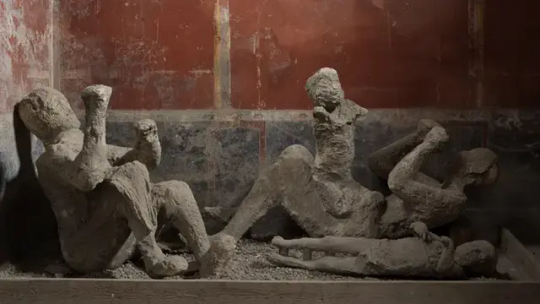
A photo of the body casts of two adults and two children who died in what's now called the house of the golden bracelet in Pompeii. A new DNA analysis shows that these four people are not genetically related to one another. (Image credit: Archeological Park of Pompeii).
DNA Analysis Rewrites The Stories of People Buried in Pompeii
An ancient-DNA analysis of victims in Pompeii who died in Mount Vesuvius' eruption reveals some unusual relations between the people who died together.
Ancient DNA taken from the Pompeii victims of Mount Vesuvius' eruption nearly 2,000 years ago reveals that some people's relationships were not what they seemed, according to a new study.
For instance, an adult who was wearing a golden bracelet and holding a child on their lap was long thought to be a mother with her child. But the new DNA analysis revealed that, in reality, the duo were "an unrelated adult male and child," study co-author David Reich, a professor of genetics at Harvard Medical School, said in a statement.
In another example, a couple who died in an embrace and were "thought to be sisters, or mother and daughter, were found to include at least one genetic male," Reich said. "These findings challenge traditional gender and familial assumptions."
In the study, published Thursday (Nov. 7) in the journal Current Biology, Reich and an international team of researchers looked at the genetics of five individuals who died during the A.D. 79 eruption that killed around 2,000 people.
When Mount Vesuvius erupted, it covered the surrounding area in a deadly layer of volcanic ash, pumice and pyroclastic flow, burying people alive and preserving the shapes of many bodies beneath the calcified layers of ash. The remains of the city were rediscovered only in the 1700s. In the following century, archaeologist Giuseppe Fiorelli perfected his plaster technique, in which he filled in the human-shaped holes left after the bodies had decomposed to create casts of the victims.
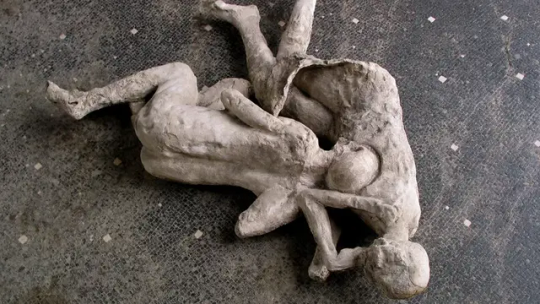
The casts of two people who died about 2,000 years ago in the house of the cryptoporticus in Pompeii. A new DNA analysis found that one individual was biologically male, but the sex of the other could not be determined. (Image credit: Archeological Park of Pompeii).
The casts allowed scholars to study the victims in their last moments and make hypotheses about their identities based on details such as their locations, positions and apparel. The problem with this approach, however, was that their interpretations were influenced by modern-day assumptions — for instance, that the four people at the house with the golden bracelet, which included the adult holding the child, were two parents with their children, when in reality none of them were genetically related, the researchers wrote in the study.
For their research, the team analyzed 14 casts and extracted DNA from fragmented skeletal remains in five of them. By analyzing this genetic material, the scientists determined the individuals' genetic relationships, sex and ancestry. The team concluded that the victims had a "diverse genomic background," primarily descending from recent eastern Mediterranean immigrants, per the statement, confirming the Roman Empire's multiethnic reality.
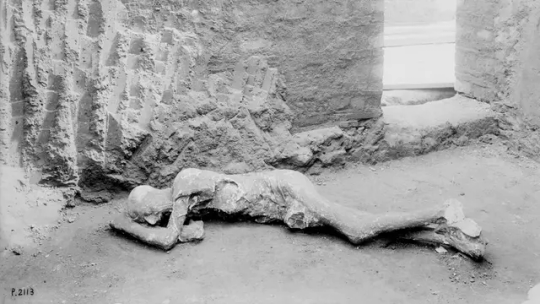
The cast of a person who died in the villa of the mysteries in Pompeii in A.D. 79. (Image credit: Archeological Park of Pompeii).
Our findings have significant implications for the interpretation of archaeological data and the understanding of ancient societies," study co-author Alissa Mittnik, an archaeogeneticist at Harvard Medical School and the Max Planck Institute for Evolutionary Anthropology in Germany, said in the statement. "They highlight the importance of integrating genetic data with archaeological and historical information to avoid misinterpretations based on modern assumptions."
It's possible that past misconceptions led to the "exploitation of the casts as vehicles for storytelling," meaning that curators may have manipulated the victims' "poses and relative positioning" for exhibits, the team wrote in the study.
Sex misassignment is "not uncommon" in archaeology, Carles Lalueza-Fox, a biologist at the Institute of Evolutionary Biology (CSIC-UPF) in Barcelona who specializes in the study of ancient DNA but was not involved with the study, said in an email.
"Of course we look at the past with the cultural eyes of the present and this view is sometimes distorted; for me the discovery of a man with a golden bracelet trying to save an unrelated child is more interesting and culturally complex than assuming it was a mother and her child," Lalueza-Fox said.
By Margherita Bassi.
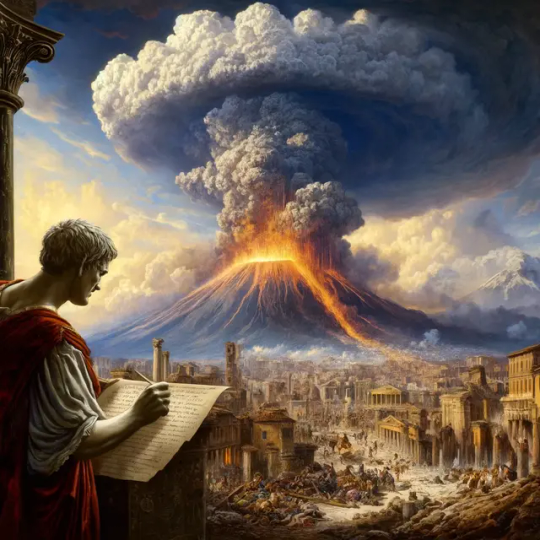


#DNA Analysis Rewrites The Stories of People Buried in Pompeii#Pompeii#Mount Vesuvius' eruption#dna#dna test#ancient artifacts#archeology#archeolgst#history#history news#ancient history#ancient culture#ancient civilizations#roman history#roman empire
268 notes
·
View notes
Text
I’m sick of people passing off patronizing and condescending commentary about how naive and impressionable women are as useful and educational. These people will base their analysis of fiction on sexist notions about how easily women are “tempted “ by malevolent villains and then act as if that’s some revolutionary take. They’ll unironically construe the narrative in a way that takes away all agency from the female heroine and frame her decisions as entirely the result of the villain’s manipulation.
They wring their hands about how dangerous it is for women to be exposed to these stories and moan about how terrible it is that hot villains appeal to the “baser instincts” and tempt female viewers further (Yes, I actually saw someone make this argument) It’s truly bizarre to see people agreeing with such patronizingly sexist rhetoric and saying things like “I miss the days when villain romances were cautionary tales and not encouraged.” As if women thirsting after attractive fictional villains is some epidemic that threatens society.
It’s especially irritating when women are the ones saying these things. They want to believe that they are a rare exception that, unlike those other brainless girls, can understand that liking hot villains will threaten their morals and lead them astray…OH THE HORROR!! Please save your dramatic preaching for the next purity conference and stop pretending that your sanctimonious commentary has any substance whatsoever.
#This is about a video I watched called: Thirst Trap Villains and Why They Need to Stop#If you’re interested in subjecting yourselves to thinly veiled conservative and purity culture rhetoric then give it a watch!#They pretty much spouted nonsense about the following ships:#haladriel#darklina#reylo#oshamir#and guess what? they also complain about the *feminism* that’s ruining Star Wars (and they’re a woman too good lord)#purity culture#shadow and bone#the darkling#alina starkov#star wars salt#the rings of power#Galadriel#saurondriel#fandom discourse#media analysis
332 notes
·
View notes
Text
is the book "confusing" or does it just ask you to think instead of spoon feeding you all the answers?
is the character "unlikable" or are you being uncharitable and unused to seeing main characters as anything other than a vehicle for self projection and wish fulfillment (either someone you'd want to be or want to be friends with)?
is the writing "problematic" or does it just display complex and flawed characters navigating a cruel world?
are the sex scenes "gratuitous" or do you just have puritan sensibilities and think that sex is something that needs to be justified because you think it cheapens art?
does "nothing happen" in the book or are you expressing your subjective preference for plot-driven stories as an objective evaluation on the book's value?
did the book "traumatize" you or is that just a term you throw around loosely to describe anything that upsets or disturbs you?
remember that one scene at shiz where elphaba says she likes to read things that challenge her because she likes to think about what she reads, and glinda stares at her like she's speaking gibberish?
yeah.
Don't get me wrong, I do understand why people don't like Maguire's writing but there is a growing trend of people hating any fiction that challenges them.
I saw a review where someone was saying they "weren't a pearl clutcher, but..." and then in the next sentence proceeded to clutch pearls. Your tolerance for bizarre fiction isn't as high as you thought it was. That's fine. It doesn't mean the book is bad.
Imagine reading a book for adults and then finding mature topics in it. The horror!
Maybe instead of blaming the author, blame whatever person or circumstances led to to believe it was a kids' book. *Hint* it was probably the popularity of the musical adaptation and the book reprints with the musical cover on it. Can't wait for more people to watch the movie and then read the book expecting it to be sunshine and rainbows. (No hate to the movie, btw it actually looks pretty good).
#books#literature#the wicked years#wicked novel#wicked book#gregory maguire#wicked#literary analysis#literary criticism#purity culture#media literacy
169 notes
·
View notes
Text
Laios, Monsters, & Toshiro: On Racialized Desire and Identification with the Other
Arguably, the most significant part of Laios' character is the societal ostracization he faces because of his non-normative interests and behavior. For the majority of his life, Laios struggles socially, and other humans mistreat him. When he rescues Marcille from the Nightmares, his nightmare dredges up his inability to fit into school and the army. During his early dungeoneering days, he's lied to and exploited by his fellow party members.

One of his earliest and most formative negative experiences with people is his village's abuse of Falin as a magic user. He shares that after the villagers discovered that she can use magic, "adults who were just kind yesterday, all began to bully [her]." Instead of protecting Falin, his parent tell her to leave the village. The prejudice Falin faces and his parents' response to it upsets Laios to the point that he leaves home.

While Laios cares about his friends, the Demon points out that Laios understandably does not care for people in general. Laios doesn't disagree with the Demon's assessment and suspects that the Demon "can sense all [his] thoughts." The Demon goes on to say that Laios actually "despise[s] all humans." Laios denies this assessment, but given the Demon's uncanny ability to sniff out people's desires and Laios' ashamed expression, at least part of Laios likely agrees with the Demon. It's not a stretch to assume that he's held onto some hurt and resentment towards humans due to their mistreatment of him and Falin in their youth.

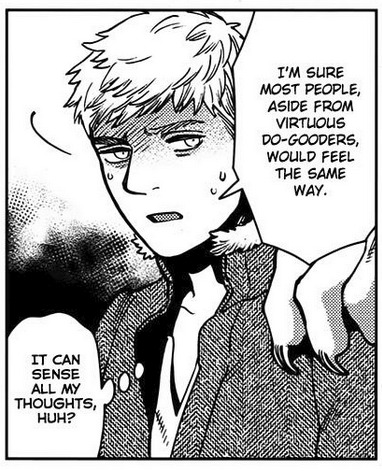
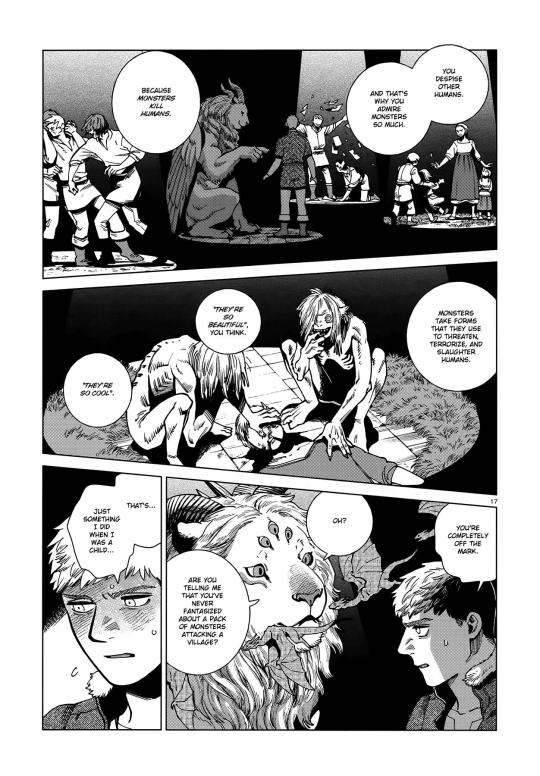
In response to how human society has othered him, Laios distances himself from humans and invests his time and energy into monsters and demi-humans instead. In the DunMeshi world, monsters and demi-humans are the ultimate societal Other. People fear them, exploit them, and even hunt and kill them. As someone who's similarly been mistreated by human society, Laios resonates deeply with monsters.
His desire to become a monster and/or beastman reflects his desire to reclaim agency over how society has ostracized him. If he chooses to become a monster, he gets to place value on what society has deemed despicable. He gets to choose why society hates him and be different on his own terms.
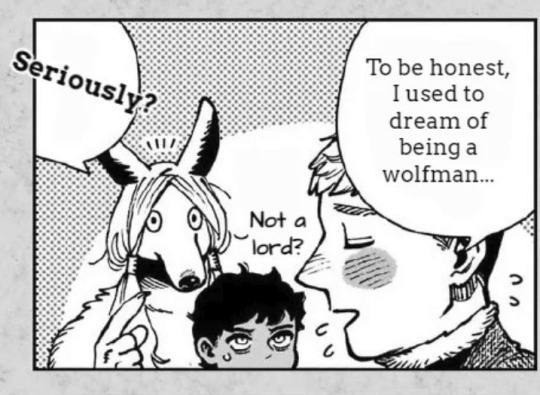
Both textually and thematically, Laios' identification with the Other bleeds into the erotic. More blatantly, he says that he'd have sex with orc women, and his succubus is a monstrous version of Marcille.


The entire story is also steeped in the theme of consumption as carnality. Laios and his party spend the entire manga eating monsters — a taboo physical act which they reap pleasure from; the underlying eroticism isn't difficult to see.
The story also presents consumption as a form of extreme identification. Eating a monster makes the monster part of you through digestion. The line between consuming the monster and becoming the monster — between erotic desire for the monster, demonstrated by eating their flesh, and identifying with the monster — is very blurred. Note that digesting a monster is an act of absorption; it destroys the original creature. Senshi states that consuming a monster erases "its individual identity," and major manga spoilers, but Laios defeats and pacifies the Demon by consuming its desire to eat. We'll come back to this concept later.
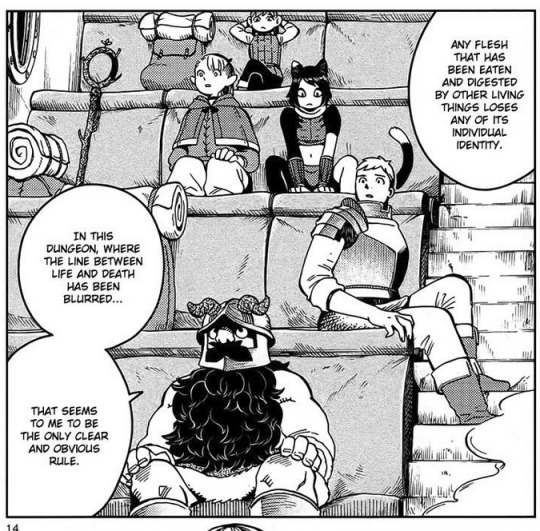
As previously mentioned, Laios is disinterested in most humans. The notable exception to this rule is Toshiro and by extension, the Eastern Archipelago. Laios doesn't seem to know much about the Archipelago before speaking to Toshiro, so he isn't drawn to Toshiro because he's an Easterner. Instead, he's drawn to his "odd appearance."
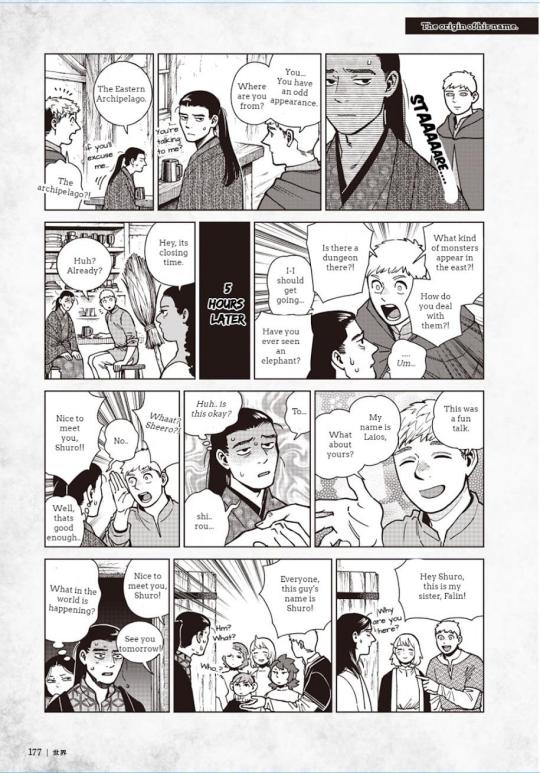
Just like Laios views monsters and demi-humans as a visible Other, Laios views Toshiro as another visible Other. On the Island, Toshiro stands out as a foreigner at first glance. While Laios as a white tallman doesn't appear visibly strange to other people, he's drawn again and again to people and creatures who are immediately visibly "odd." He sees them as understanding what it's like to be different and be mistreated for it, and since he relates to that experience, he wants to learn about them and be closer to them.
Essentially, Laios behaves towards Toshiro and his culture the same way he behaves towards monsters; he wants to know everything about Toshiro's foreign culture — the thing which makes him different. Unintentionally, Laios unintentionally reduces Toshiro to being Japanese; if he wasn't Japanese, Laios would never have approached him.
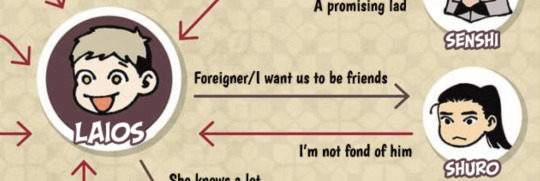
While Laios doesn't have bad intentions, as Toshiro himself acknowledges during their fight, his behavior towards Toshiro still has negative consequences. Laios' harmless interest in monsters translates to fetishization in the context of Japanese culture. He enacts multiple microaggressions against Toshiro and crossing his boundaries.
Laios goes beyond merely learning about Japanese culture. He takes parts of it for himself when he names his sword a Japanese name. Akin to his consumption of monsters, Laios attempts to participate in Toshiro's culture while failing to respect Toshiro himself. Just as eating monsters destroys them, Laios consuming Toshiro's culture while enacting racism against him causes real harm.
Many people have already written about Laios' microaggressions towards Toshiro, but a couple include Laios telling Toshiro that he looks "odd" and asking where he's from, mispronouncing his name as "Shuro," and assuming his favorite food is rice. Laios' treatment and fetishization of Toshiro is racist and harmful. However, I'd like to dive beyond the surface of Laios' micro-aggressive remarks and examine how his obsession with Toshiro becomes a racialized mode of desire, paralleling real world phenomena.
Though no concrete canonical evidence of Laios' feelings towards Toshiro being romantic and/or sexual exists, his interactions with Toshiro have erotic undertones. Their fight dialogue, in particular, revolves around eating, an act the story consistently shows as carnal. During this fight, Laios places his thumb in Toshiro's mouth and asks him, "What's the point of even having a mouth?" Laios' penetration of Toshiro's body via his mouth and his question's potential as an innuendo lend themselves to an erotic reading of the scene's more obvious conflict. Considering the overlap between consumption and carnality throughout the story, it's not a large jump to read eroticism into Laios demanding Toshiro meet his body's physical needs.

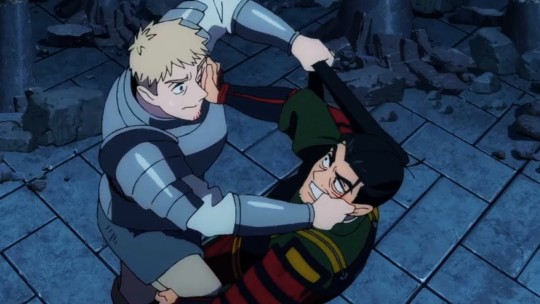
Furthermore, Laios is more enthusiastic about Toshiro than any other human in the series. While he cares deeply about his sister and his friends, Laios repeatedly expresses how much he admires Toshiro. He retains and brings up things like Toshiro's (perceived) favorite food. He wants to go to the East in Falin's place after she rejects Toshiro's marriage proposal, and in the "What-If" extra material, he's adamant about setting up a scenario where Toshiro travels with him through the Dungeon.

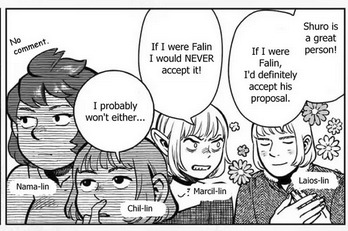

Undoubtedly, Laios is drawn to Toshiro. Since he sees non-white-ness and monstrosity as equivalent markers of societal othering, Toshiro's identity as a foreigner is what cultivates and maintains Laios' interest in him. Even if Laios learns to care for Toshiro as a person, his desire for Toshiro, platonically or otherwise, is still filtered heavily through race within the narrative.
Laios' relationship with his masculinity is also fraught. He broke off his engagement with a girl from his village and doesn't express normative interest in female tallmen. Seeing how the nightmare versions of his parents ask him when he's going to give them grandchildren, Laios experiences societal pressure to conform to a normative performance of masculinity through being attracted to and marrying a tallman woman and creating a family with her.
Laios frequently talks about how cool and admirable Toshiro is when he performs masculinity through combat, etc. He might find Toshiro's Asian masculinity more appealing and more accessible to him than the masculinity that's been forced onto him, precisely because Toshiro's Asian masculinity appears non-normative in a Western lens. But co-opting the masculinities of men of color as a white man would only further feed into the white consumption of cultures of color.
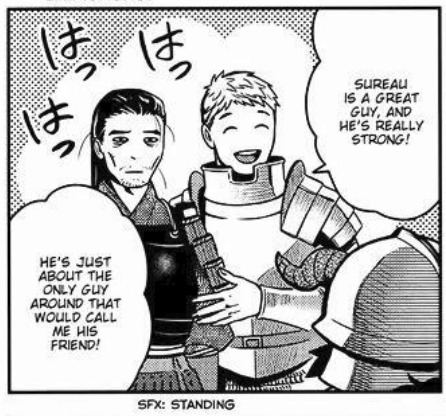
Overall, Laios' entitlement to and consumption of Toshiro's culture mirrors the real-life way white people co-opt and fetishize non-white cultures. Laios' fetishistic treatment of Japanese culture, because of his attraction (platonic or otherwise) to Toshiro, parallels white people's treatment of Asian people in the Western diaspora. I can only speak on the Asian American experience, but Laios immediately being drawn to Toshiro's "odd appearance," obsessing over his culture, and primarily treating Toshiro as a conduit for his said culture feels eerily close to how some white anime and/or K-pop fans act towards Japanese and Korean people.
Similarly to Laios, real queer, neurodivergent, and/or otherwise non-normative white people are marginalized by white Western society. They relate to how society others non-white cultures and/or people of color and latch onto them. While forming human connections based on curiosity and shared experiences is wonderful, white people are often unaware of the racial dynamics at play when they engage with non-white cultures and people of color and unintentionally, end up consuming and fetishizing non-white cultures in detrimental ways.
None of this negates the reality that Laios and Toshiro canonically care for each other. For instance, Toshiro's willingness to hug Laios reveals his genuine familiarity with and affection for him. The racial dynamics of their friendship complicate their relationship in fascinating ways and open up a potential path for Laios' growth. With time and effort, Laios could absolutely unlearn his racism and become a much better friend to Toshiro.
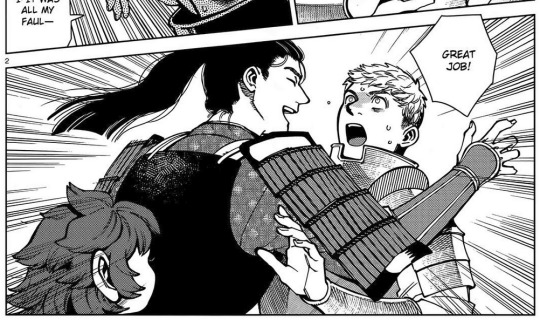
In conclusion, Laios' behavior towards Toshiro is a study in a marginalized white person's identification with and racialized desire for a non-white Other and how even a well-intentioned attempt at connection can replicate harmful racist dynamics. Toshiro's experience with Laios closely parallels real Asian people's struggles with racism and fetishization in our world today.
#laios touden#toshiro nakamoto#shuro#dungeon meshi#dunmeshi meta#dunmeshi analysis#i didn't want this to be superrr long but laios' treatment of the orcs is similar to his treatment of toshiro#he takes their cultural practices out of context and appropriates them (i.e. him wearing spoils of war when he declares himself king)#frankly him wanting to be an orc/wanting to sleep w orc women/appropriating their culture#and blurring the lines between identification/desire/consumption is even more clear than w toshiro#ryoko kui has a lot of interesting racial commentary in her work#but also she kinda flops on her depictions of black and brown ppl#anyw all very interesting to examine#i love u themes of consumption and desire and identity and borderline cannibalism#dunmeshi#delicious in dungeon#*mine#*meta
327 notes
·
View notes
Text
I love the "humans into Cybertronians" trope, so we should have more work about the weirdness that's humanity, especially as an animal, and how it translates into their Cybertronian frame.
I mean, Earth is very much a Death Planet/Space Australia goes really well with the "Unicron is Earth" subplot. Might as well lean really into it.
Like tolerance to toxins and disease, so it's not just a wider range of possible substances to consume but even capable of figuring out how to prepare toxic ingredients into edible dishes that won't kill other Cybertronians as well as greater resistance towards certain pathogens as infectious disease a massive driving force when it comes to evolution. I think it would be fascinating to explore the effects of the genetic mutations transferring over, like how the very genes that increased survival with bubonic plague (Black Death) is capable of withstanding of the Cybertronian-equivalent, Rust Plague or Cosmic Rust. Funny enough, those mutations that allow that resistance to plague are also associated with developing autoimmune diseases such as Crohn's disease and rheumatoid arthritis.
So now, more potential storylines for disabilities and how they're perceived between humans and Cybertronians, especially how each side approaches it.
Transformation capabilities are incredibly important to them. It's deeply entwined in their cultural/societal framework, so a cyberformed!human with no T-cog is the disability to them.
Look at the massive difference between Ultra Magnus losing a hand versus Starscream and Bumblebee losing their T-cogs; physical disabilities have workarounds or even straight-up fixes as long there are enough resources (Breakdown's eyepatch and Ultra Magnus' claw).
It doesn't matter the training or capabilities. Agent Fowler's military record and June Darby's medical experience would be considered secondary as they're severely handicapped and more vulnerable compared to them. Then there are other angles to utilize of the biological and cultural differences, especially with the popular fandom idea of sparklings and canon Functionism, so would it really be a huge surprise if those cyberformed!humans were coddled or infantilized since humans barely last a single year in a Cybertronian lifetime? That has to be beyond frustrating on so many levels.
And vice versa, like imagine a humanized Megatron gets taken out by celiac disease or being severely lactose intolerant?
#Transformers#transformers prime#tfp#humanformers#humans into cybertronians#cybertronian culture#cybertronian biology#culture clash#cultural misunderstandings#cultural differences#medical complications#maccadam#tf headcanons#my thoughts#my writing#discrimination#analysis#ehhh idk if the analysis tag fits as it's not too deep#but i think it's why i really delve into supernatural and fantasy elements as magic powers can be a major equalizer here#also all hail Megatron upon the porcelain throne 🚽
225 notes
·
View notes
Text
you Will read 3d workers island. it’s so detailed and rich. it captures an atmosphere of old internet rumors and creepypasta very well WHICH ties into the narrative’s themes of what outsiders see/don’t see in familial abuse situations + interpreting media and seeing a reflection of one’s experiences
i love the open-endedness about what is real or fiction. it works thematically whether you choose to see the creepiness as real or a rumor, whether the program is alive or not. i also love that even if nothing nefarious is there it’s still meaningful to the people who see themselves in amber
#3d workers island#3dwiscr#am.txt#analysis#aside from the petscop thematic similarities (ofc they have the same author)#reminds me somewhat of umineko (the weight of fiction and reality and truth and their interplay + abuse n what is revealed n how one copes)#+ the northern caves (what readers bring to media + analyzing something that feels meaningful to you even if it may lack meaning#+ old internet culture)#fascinating work it’s really great
148 notes
·
View notes
Text
J.K.Rowling really was ahead of her time when she wrote Chamber of Secrets, because Ginny writing in Riddle’s diary and slowly being manipulated, exploited and abused by him, while she though he was her friend is such a good allegory for grooming.
#pro jkr#jk rowling#harry potter#hp fandom#hp#harry potter blog#hp blog#fandom culture#fandom things#ginny weasley#tom riddle#tom riddle jr#lord voldemort#i stand with jk rowling#the queen#hp analysis
319 notes
·
View notes
Text
just saw someone on tiktok discussing whether or not a character "deserved a redemption arc" and i am losing my mind. we as a society have lost sight of what a redemption arc IS. it doesn't mean a character is rewarded by the narrative. it doesn't mean the other characters forgive them. it only refers to a character acknowledging their mistakes and choosing to better themselves, which any person can do, no matter how terrible. of course there's no shortage of badly executed redemption arcs, and a character who willfully committed countless atrocities having a change of heart after a single conversation about the power of friendship is simply poor writing and unrealistic. not every character who CAN change WILL. but there is zero value in debating whether a character "deserved" to be redeemed. no one in fiction or reality needs to be "worthy" of making better choices. there is no fixed point where a person is "too evil" and therefore forbidden from doing anything differently. it's always worth it to change, and implying otherwise is both a genuinely harmful ideology and bad literary analysis
#*heavy breathing*#me when i allow tiktok to make me upset#i must not care about tiktok media literacy. tiktok media literacy is the mind-killer.#tiktok media literacy is the little death that brings total obliteration-#anyway im calm and normal now#i stg this outburst has no correlation to my blorbo being a recovered mass murderer I SWEAR ON MY LIFE PLEASE-#tiktok#media literacy#literary analysis#rant post#redemption arc#vent. ig?#fuck it#ben linus#post isn't even about him but he's in my brain so..#writing#purity culture
327 notes
·
View notes
Text
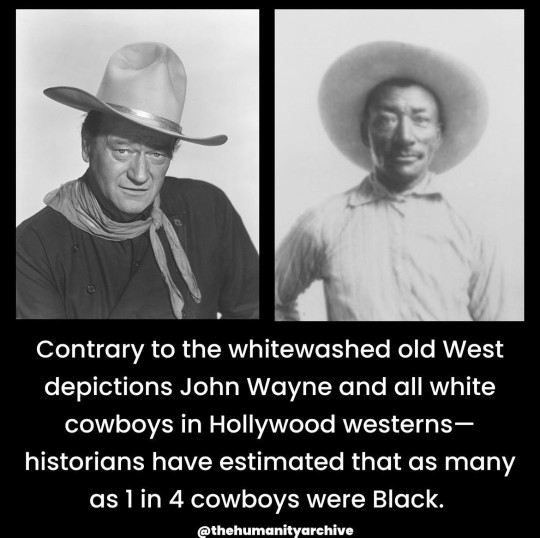
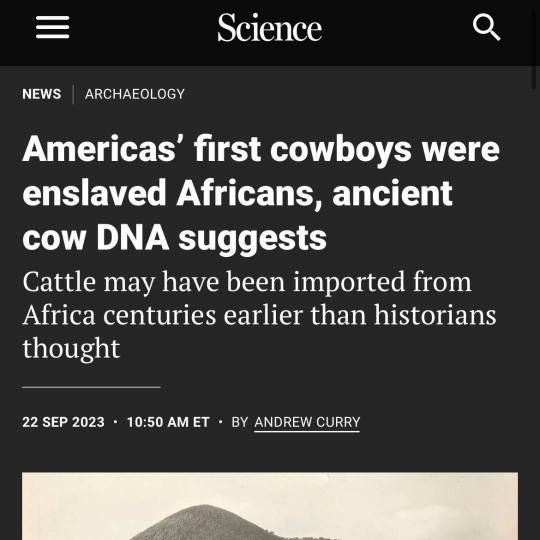
"...the first cowboys lived in Mexico and the Caribbean, and most of them were Black. That’s the conclusion of a recent analysis of DNA from 400-year-old cow bones excavated on the island of Hispaniola and at sites in Mexico. The work, published in Scientific Reports, also provides evidence that African cattle made it to the Americas at least a century earlier than historians realized. The timing of these African imports—to the early 1600s—suggests the growth of cattle herds may have been connected to the slave trade, says study author Nicolas Delsol, an archaeozoologist at the Florida Museum of Natural History. “It changes the whole perspective on the mythical figure of the cowboy, which has been whitewashed over the 20th century.”
x
#cowboys#african heritage#caribbean history#mexican history#dna analysis#historical perspective#slave trade#cattle herds#cultural reevaluation#17th century#black cowboys#early americas#black history
408 notes
·
View notes
Text
I think the other reason I don't really get into ships as portrayed by fandom culture is that it seems like the mindset is more like. "I want these characters to be in a Romantic Relationship(TM)" instead of "I want these characters' relationship to be romantic"
What I mean here is that, so often I see pairings enacting romance tropes to the point of heavily altering or downright replacing their original dynamic - as if the people behind it only understand romance as a series of checklists to tick off. Couples like to kiss and sleep in the same bed and flirt with each other, so it doesn't matter who the characters are, if they're a couple then naturally they'll do those things, right??
And that's where the whole thing starts to lose me, because I would assume that the appeal of shipping characters is, y'know... the characters? Rather than just, the idea of a couple? If I'm thinking about how it'd be cool for them to be in love, my first thought is always "so how would they show it," because just like everything else about a person, the answer is going to be different on a case-by-case basis.
Maybe the characters involved aren't really into kissing, but they like arranging date activities. Maybe they aren't committed to the structure of dating at all, and just want to be around each other whenever they can. And even if they are the types to like doing traditionally romantic things, that doesn't suddenly erase whatever else they had going on before they started adding that on top of it.
I'm not saying that the more typical romance tropes and activities are bad, just that they're applied kind of excessively, regardless of whether or not they actually work for the characters involved. I want to see my favorite characters having relationships that are true to who they are, not what the stock depiction of a couple says they should be.
#amatonormativity#fandom#shipping#media discussion#fandom culture#analysis#meta#This would be easier to illustrate with examples but I don't wanna sound mean by targeting specific ones right out the gate#And yes people are just having fun with their metaphorical dolls and I respect that#But also. they get to find other people playing with their dolls in the same way that appeals to them all the time#I gotta play all by myself over here with how difficult it is to find the things I want
192 notes
·
View notes